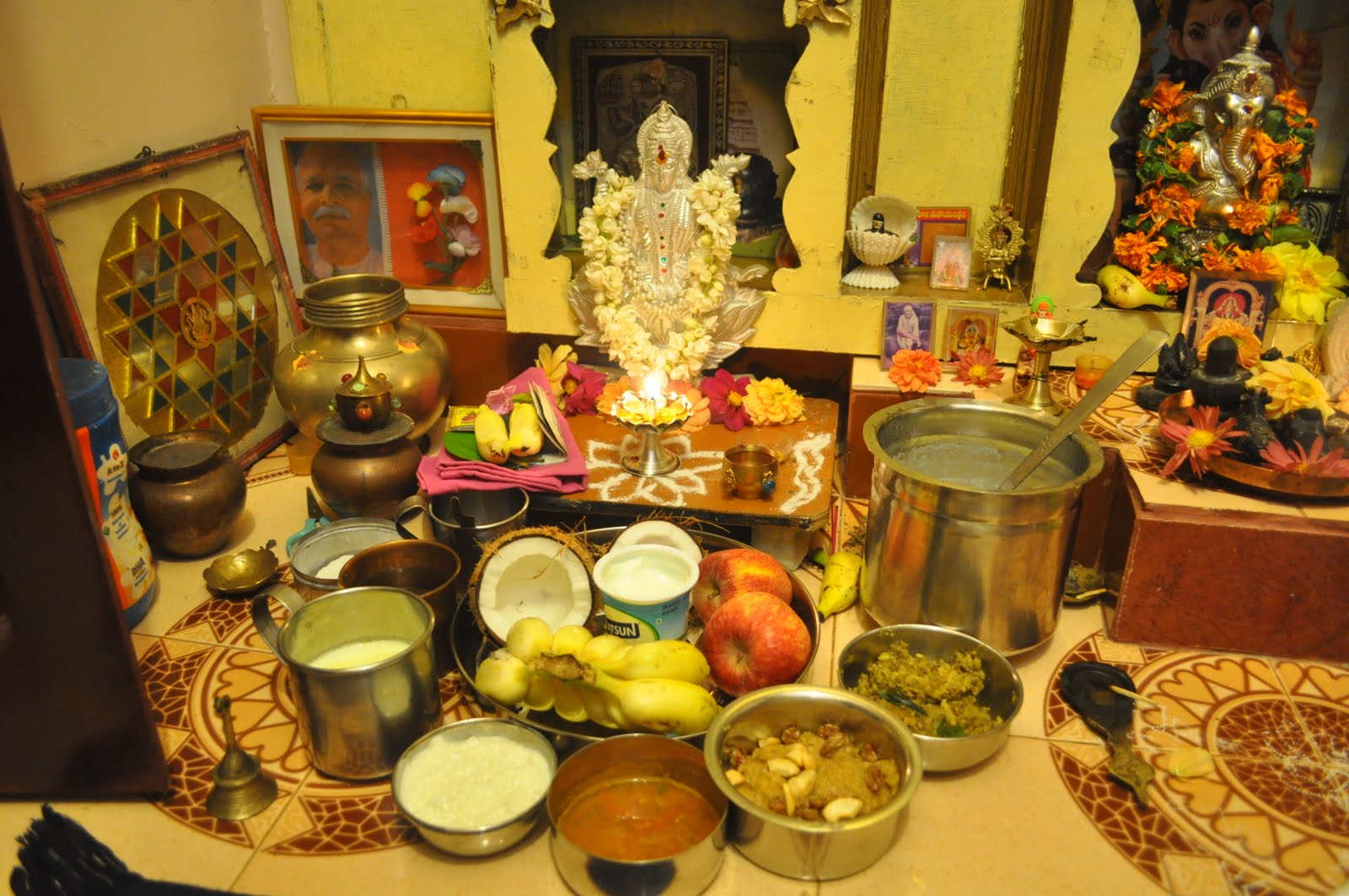Varalakshmi Vratham
'| varalakshmi-vratham | |
|---|---|
 varalakshmi-vratham | |
The origin of Varalakshmi vratham begins with a celestial woman named Chithiranemi, who was a judge, involved settling disputes between the Devas providing justice for them. At one point in time, when she failed to be just and showed partiality in her judgement, Devi Parvati cursed her to be afflicted by leprosy.
Chithiranemi fell at the feet of Parvati asking for forgiveness. Parvati told her that if she followed the austerities of Varalakshmi vratham, she will be relieved of her illness.
She came to Earth to perform the vratham at the bank of a pond and got relieved of her curse.
It is believed that bathing in the sacred rivers bestows the benefit of performing the austerities of the vratham, particularly Ganga, Yamuna, Narmada, Saraswati, Godavari, Kaveri and Thamirabharani provide the benefit of performing Varalakshmi vratham for the entire life.
There is another story about Charuthi, a highly religious woman from Magadha kingdom, who considered her in-laws as the representation of the Gods themselves and served them well. Goddess Mahalakshmi liked her actions and visited Charuthi in her sleep and blessed her. Belief has it that Goddess Mahalakshmi blesses and resides in the homes of those who perform the Varalakshmi vratham with dedication and devotion, she told her and asked her to spread the word around. And thus started the vratham, also called varalakshmi nonbu.
Why is Varalakshmi vratham performed?
Goddess Mahalakshmi was born in the Kshirsagar [Ocean of milk]. She came to Earth as Sita, Padmavathi, Thulasi, Andal and many other forms, whenever Lord vishnu was born on Earth in his various forms.
Varalakshmi vratham is a way of thanksgiving for the Goddess, who is the representation of all wealth in the World. She is the icon of tolerance and who resides in the heart of her husband. She is the protector of women from hurt. She, who wears yellow silk, is representative of kindness, beauty, love, wisdom. In the Atharvana veda, it is said that Lakshmi is the doer of good for everyone. When women perform the Varalakshmi vratham, it is believed that the Ashtalakshmis become happy and the families are blessed with wealth, grains, courage, victory, valor, good children and education.


